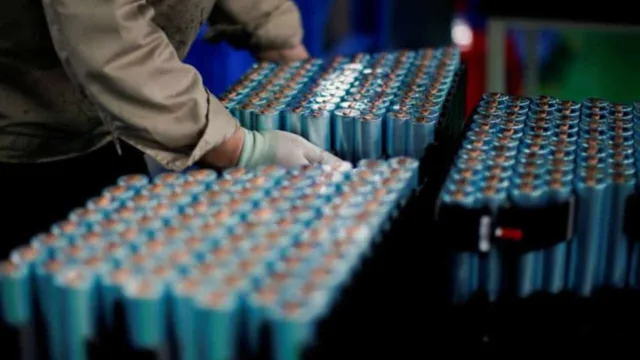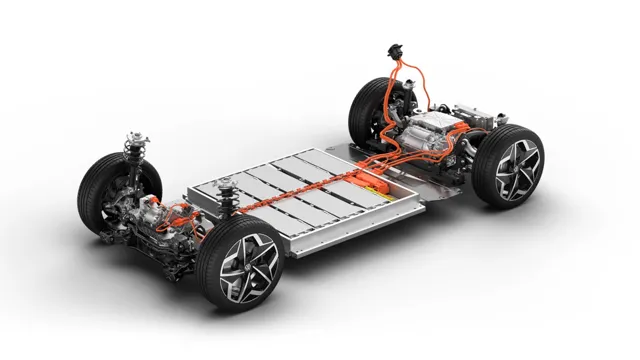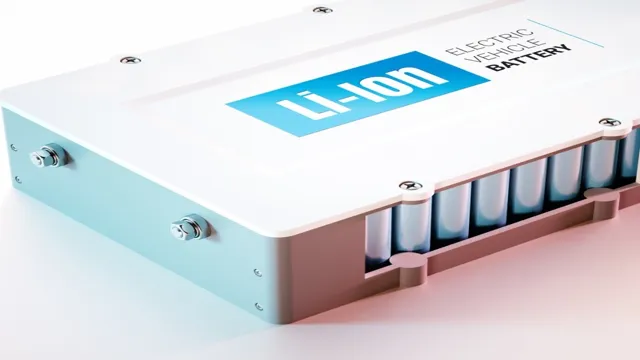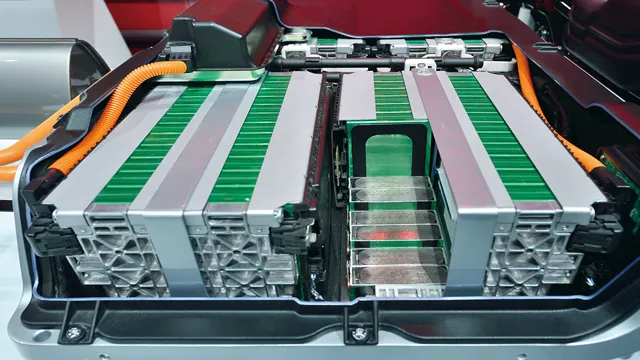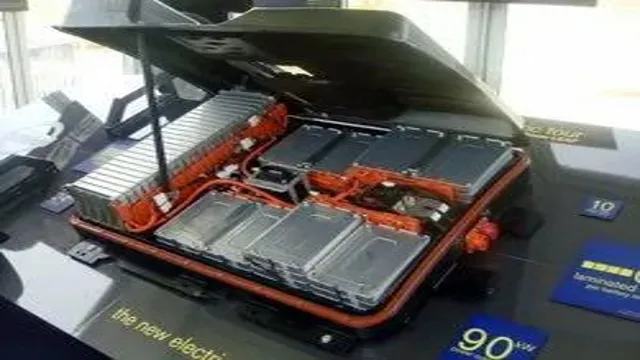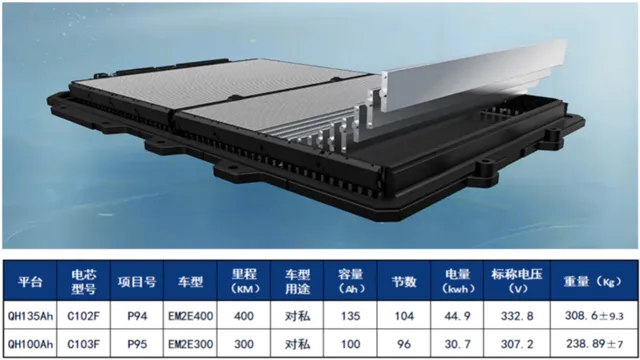Reviving the Power of Electric Car Batteries: A Comprehensive Guide to Recycling
Have you ever wondered what happens to the battery of your electric car once it’s no longer able to hold a charge? While electric cars may be better for the environment than gas-powered vehicles, the issue of what to do with their batteries when they’re no longer useful is a relatively new problem. The good news is that recycling electric car batteries is possible, and it’s becoming more and more common as the popularity of electric cars continues to rise. In fact, recycling these batteries is not only environmentally friendly, but it has the potential to offset the cost of manufacturing new batteries as well.
So let’s take a closer look at how recycling electric car batteries works, and what benefits we can expect from doing so.
Environmental Impact of Batteries
If you’re wondering whether you can recycle batteries from an electric car, the answer is yes. However, it’s not a straightforward process. EV batteries contain valuable metals like lithium, cobalt, and nickel, which can be reused to create new batteries.
When you recycle EV batteries, you reduce the demand for new extraction, which can cause environmental damage. Recycling EV batteries also helps reduce waste, which is a growing concern for many industries. The process involves dismantling the battery pack, separating the valuable metals from the other components, and then repurposing them for new batteries.
The challenge that arises with EV battery recycling is the high cost of the operation. Recycling EV batteries is relatively new, so it requires a significant investment in infrastructure and technology. Despite the challenges, it’s critical to recycle EV batteries to minimize their environmental impact and ensure that valuable materials are reused.
Pollution and Landfill Concerns
When we think about the environmental impact of batteries, we often focus on their production and disposal. Both of these stages contribute significantly to pollution and landfill concerns. Manufacturing batteries requires the mining of raw materials like lithium, cobalt, and nickel, which can release harmful chemicals and waste into nearby ecosystems.
Additionally, the large-scale disposal of batteries can result in harmful chemicals leaching into the ground and contaminating soil and water sources. It’s important to note that not all batteries are created equal – some types, like rechargeable ones, can significantly reduce the amount of waste generated compared to disposable batteries. Choosing high-quality, long-lasting batteries and properly disposing of them can help reduce the environmental impact of our energy use.
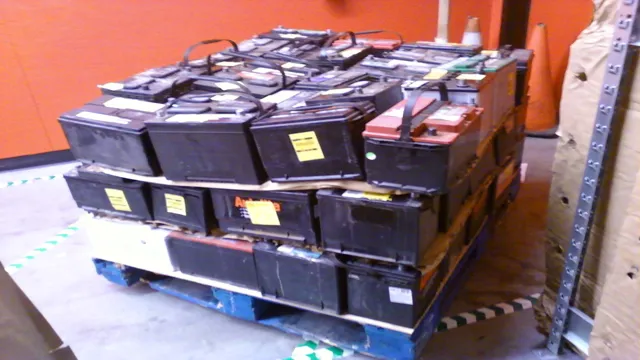
Benefits of Battery Recycling
Battery recycling has become increasingly important as the environmental impact of batteries continues to be a concern. Batteries are a major source of electronic waste, and they contain harmful chemicals such as lead, cadmium, and mercury. When not properly disposed of, these chemicals can seep into the soil and water, polluting the environment and posing a risk to public health.
Recycling batteries helps prevent these chemicals from leaching into the environment and reduces the need to mine for new materials. In addition, it saves energy by avoiding the process of extracting and processing raw materials to manufacture new batteries. By recycling batteries, we can promote environmental sustainability and protect the health and well-being of our communities.
How Batteries are Recycled
If you’re wondering whether you can recycle batteries from an electric car, the answer is a resounding yes! Recycling batteries is critical because they can cause serious environmental problems if they are not disposed of properly. The first step in battery recycling is to collect them from the vehicles. Then, the batteries are broken down into smaller parts, and useful materials like nickel and cobalt are extracted.
These materials are then used to create new batteries. It’s an efficient and environmentally-friendly process that helps reduce waste and protect our planet. So, if you’re an electric car owner, make sure to recycle your batteries when they’re no longer usable.
It’s a small step that can make a big impact.
Collection and Sorting Process
When it comes to recycling batteries, the first step is collecting them from various sources like households, businesses, and other organizations. Once collected, the batteries are sorted according to their chemistry, as different batteries contain different materials and chemicals. The sorting process helps in identifying the type of batteries to be recycled and how to handle them appropriately.
For instance, lithium-ion batteries found in smartphones and laptops require different handling procedures than lead-acid batteries in cars. After sorting, the batteries are broken down into small pieces and then heated to melt the different components. During this process, the metals and plastics like copper, aluminum, nickel, and iron can be separated from other materials like electrolyte and plastic, which are then disposed of.
The recovered metals are then processed and purified to be used as raw materials in the production of new batteries and other metal-based products. Thus, recycling batteries helps to conserve natural resources, reduce waste, and reduce pollution caused by the disposal of batteries in landfills.
Extraction of Valuable Metals
When it comes to recycling, batteries might not be the first things that come to mind. However, with the rise of electric vehicles and other electronics, recycling batteries has become more important than ever. The process of recycling batteries involves extracting valuable metals such as lithium, nickel, cobalt, and manganese.
These metals can then be repurposed for new batteries or other applications. Recycling also helps to prevent the disposal of hazardous materials in landfills, which can harm the environment. It’s amazing to consider that something as small as a battery can have such a significant impact on our planet.
By recycling them, we can ensure that these valuable materials are reused and preserved for future generations. So next time you’re thinking about throwing away your old battery, remember that there’s a better option – recycling.
Disposal of Harmful Substances
Batteries are a common source of hazardous waste, and proper disposal is crucial to protect human health and the environment. Did you know that batteries can be recycled? Recycling allows for the recovery of valuable materials and prevents harmful substances from polluting the earth. The recycling process involves breaking down the batteries into their component parts such as metal, plastic, and electrolytes.
Metals like nickel, cobalt, and lithium are then extracted and used to create new batteries or other products. While the recycling process is not perfect and can still produce waste, it is an important step towards reducing the impact of harmful substances on our planet. By properly disposing of batteries, we can contribute to a cleaner, safer environment for generations to come.
Challenges of Recycling Electric Car Batteries
Recycling batteries from electric cars is a complex task that comes with certain challenges. One of the biggest concerns is that electric vehicle (EV) batteries contain a high amount of heavy metals, such as cobalt, nickel, and lithium, that can be harmful to the environment if not handled properly. These metals are used to increase the performance and capacity of the batteries but make them difficult to recycle.
Moreover, recycling EV batteries is still in its infancy, and there is no established system or infrastructure to handle it on a mass scale. The process involves dismantling the battery, sorting out the reusable materials, and extracting the metals, which requires sophisticated technology and high energy input, making it an expensive operation. However, the good news is that electric car manufacturers are working towards developing new recycling techniques and collaborating with third-party recyclers to ensure a sustainable lifecycle for the batteries.
As more research is conducted on recycling and refining the processes, hopefully, the challenges associated with recycling are reduced in the future.
Complexity of Battery Design
The complexity of electric car battery design poses a significant challenge for recycling efforts. Unlike traditional lead-acid batteries, which are relatively simple to break down and reuse, electric car batteries require a highly specialized process that can safely separate and extract valuable materials like cobalt, nickel, and lithium. This process requires a significant investment in technology and infrastructure, which can make recycling electric car batteries more costly than conventional battery recycling.
Furthermore, the number of electric cars on the road is expected to grow exponentially in the coming years, and many of these batteries will reach the end of their useful life within a decade or two, putting even more pressure on recycling efforts. However, despite these challenges, there is significant progress being made in battery recycling technology, which bodes well for the future of electric mobility. By developing new methods to recover valuable materials and designing batteries for easier disassembly and reuse, we can reduce the environmental impact of electric cars and create a more sustainable energy future.
So, let’s not let the complexity of battery design deter us and instead focus on making recycling electric car batteries easier for the benefit of the planet.
Volume and Logistics
Recycling electric car batteries is not as simple as one might think. One of the biggest challenges is managing the volume and logistics of the process. With the increase in popularity of electric cars, the number of batteries that need to be recycled is growing rapidly.
However, the process of dismantling and disposing of the batteries is complex and costly. The sheer volume of batteries that need to be recycled presents a logistical nightmare, as specialized equipment and expertise are required to safely extract and dispose of the chemicals and materials within the batteries. The risk of explosion and potential environmental damage also makes the process highly regulated, adding further costs and delays.
Despite these challenges, recycling electric car batteries is both necessary and worthwhile, as it helps reduce the environmental impact of the transportation industry and conserves valuable resources. Efforts are underway to streamline the process and make it more cost-effective, but until then, the challenges of volume and logistics will continue to be a major hurdle in the recycling of electric car batteries.
Future of Battery Recycling
Yes, it is absolutely possible to recycle batteries from electric cars. The recycling process starts by disassembling the battery pack to separate all individual components such as the control electronics, casing, cooling systems, and of course, the battery cells. Next, the battery cells are tested to identify those that are in good condition for reuse or resale, and those which are damaged or degraded need to be recycled.
The recycling process involves crushing and grinding the cells into fine particles, followed by heating and chemical treatment to extract the valuable metals such as cobalt, nickel, and lithium. The recovered metals can then be used to make new batteries or other tech products. Battery recycling is crucial to reduce the environmental impact of electric vehicles and ensure a sustainable supply of raw materials.
Recycling also helps to reduce the cost of lithium-ion batteries, making them more affordable and accessible to a wider market.
Conclusion
While it may seem counterintuitive to recycle something that seems already so eco-friendly, the truth is that electric car batteries can and should be recycled. Not only does it keep harmful chemicals and materials out of our landfills, it also helps reduce the demand for mining new materials. So the next time you see an electric car zoom past, don’t just admire its sleekness, also remember that its battery can be given a second life through recycling.
“
FAQs
Why is it important to recycle batteries from electric cars?
It is important to recycle batteries from electric cars to prevent the release of harmful chemicals and pollutants into the environment. Additionally, recycling these batteries can help reduce the demand for new materials and conserve resources.
Can all types of batteries from electric cars be recycled?
While many types of batteries from electric cars can be recycled, the process and ability to do so may vary. It is important to check with local recycling facilities or the battery manufacturer for information on proper disposal and recycling methods.
How is the recycling process for electric car batteries different from traditional lead-acid batteries?
The recycling process for electric car batteries is different from traditional lead-acid batteries in that it involves more complex technologies such as hydrometallurgical and pyrometallurgical processes. This is due to the unique chemistry and composition of the batteries in electric cars.
What happens to the materials that are recovered during the recycling process for electric car batteries?
During the recycling process for electric car batteries, materials such as lithium, cobalt, and nickel can be recovered and reused in the production of new batteries. This helps reduce the need for mining new materials and conserves resources.

